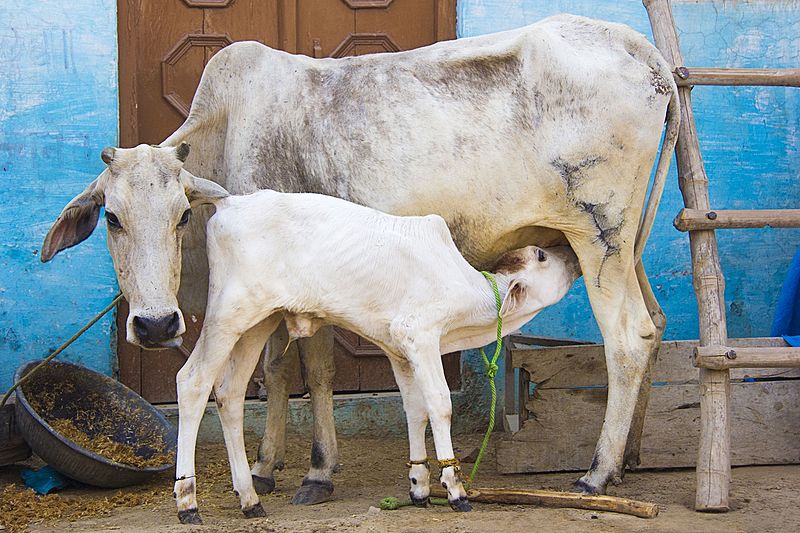SN Misra
Justice SK Yadav of the Allahabad High Court has recently stirred a hornet’s nest by observing that “fundamental right is not only the prerogative of beef eaters, rather, those who worship the cow and are financially dependent on cows also have the fundamental right to lead a meaningful life… The right to life is above the right to kill and the right to eat beef can never be considered a fundamental right.” He has implored the government to declare the cow as the national animal and make strict laws against those who harm cows. Quoting scientists, the judge further observed that “cow is the only animal that inhales and exhales oxygen.”
Cow slaughter is an emotive issue in India because of the animal’s status as an endearing and respected living being among Hindus, Sikhs, Jains and Buddhists. When the Constitution was being drafted most of the Hindu members were strongly supportive of a ban on cow slaughter. Mahatma Gandhi was in favour of such a law, while Jawaharlal Nehru was opposed to it. Because of the sharp schism in views, the framers of the Constitution decided to keep the prohibition on slaughter of cow, calf and other milch and draught animals as a directive principle under Article 48, which is not enforceable in the court of law. The preservation, protection and improvement of livestock are the prerogative of the state governments, as they figure as item 15 in the State List. Accordingly, the legal provision of different states widely varies. In Andhra Pradesh, Goa, Kerala, Tamil Nadu, Mizoram, Meghalaya, Manipur, Nagaland, Tripura and West Bengal, where there are sizable Muslim and Christian populations, there is no ban on cow slaughter.
The Supreme Court has been seized of this contentious matter since 1958. The first major case, Mohd Hanif Quareshi & Others vs the State of Bihar came up in 1958, when the Bihar government passed the Bihar Preservation and Improvement of Animals Act, 1955, putting a complete ban on slaughter of cow and her progeny including bulls. The petitioners had prayed before the court that a total ban on cow slaughter would infringe their fundamental rights under Article 19(1)(g), which gives them the right to carry on any trade or business and Article 25 which protects their religious rights. In a unanimous judgement, the court tried to strike a balance between the fundamental rights and the directive principles. The court prohibited slaughter of cows and calves and other milch cattle which were still having useful life. However, those which were not useful the court felt “maintenance of such useless cattle involves a wasteful drain on the nation’s cattle feed.” Further it had observed that a total ban will bring about a serious dislocation of the business of butchers, hide merchants and a large section of society.
The Quareshi judgement remained valid till the Gujarat government came up with an Act to completely ban cow slaughter. The matter came up before the Supreme Court in Mirzapur Kasab vs. State of Gujarat in 2005, when the court upheld the Act. The judges focused on the utility of cows and their progeny. Then Chief Justice of India RC Lahoti had famously observed “the value of dung is much more than even the famous Kohinoor diamond.” However, justice Mathur in a dissenting note had observed that “if an enactment is made for advancement of directive principles and it runs counter to fundamental rights, an attempt should be made to harmonise the same if it promotes larger public interest.”
Ever since the BJP government came to power at the Centre, efforts are being made to divide the people on communal lines. When the government came up with a law in 2017 to confiscate animals of traders, the Supreme Court came down heavily on it. Then Chief Justice of India SA Bobde while asking the government to amend the law had observed “animals are a source of livelihood. People live on the basis of their animals. You cannot confiscate them before the man is convicted. Your rules are arbitrary.”
Justice Yadav’s call for cow protection as a fundamental right will run contrary to the pluralistic and multi-religious character of India and the right to freedom of what we eat and what trade we take up. Cultural homogenisation is anathema to a liberal democratic society like ours.
The writer teaches constitutional law.
